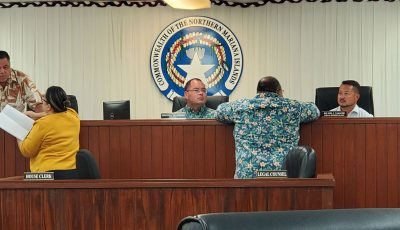House to vote on Kilili’s improved status bill
The bill introduced by Gregorio Kilili C. Sablan (Ind-MP) that would address the status of individuals under categorical parole program and those with employment authorization documents will be up for a floor vote in the U.S. House of Representatives on Monday (Tuesday on Saipan).
H.R. 559 would give permanent residency status for 1,038 individuals who have resided in the CNMI for years and were given humanitarian parole and EAD’s during the administration of former President Barack Obama in November 2011.
Sablan said he introduced H.R. 559 during the opening session of the 116th Congress in January this year to help the categorical parolees and those with EAD’s get improved status.
He did concede that immigration policy is “extremely contentions.”
“This year’s government shutdown, the longest ever [35 days], was because of immigration policy. I held a hearing on the parolees in February and asked Gov. Ralph DLG Torres to use his influence with the Trump administration,” Sablan said
These individuals were granted parole almost eight years ago; Sablan was hoping that would have been enough for a pathway to green cards. He even tried to convince Obama on the idea when he met with President Obama in September of the same year but nothing came out of that.
Sablan introduced H.R. 1466 during the 112th U.S. Congress and asked U.S. Citizenship and Immigration Services to let the humanitarian parolees and EAD’s remain in the CNMI legally while Congress was deliberating on H.R. 1466.
USCIS, under the administration of President Trump, pulled the plug on the program in December last year but gave a window of 180 days to allow these individuals to transition to other status—like the CNMI-Only Transitional Worker visas—to remain in the CNMI legally.
The 180 days will end on June 29 and those under the programs should have obtained other immigration status or leave the CNMI until the issue is resolved.
Those affected by the issue are immediate relatives of U.S. citizens and other stateless individuals, CNMI permanent residents and their IRs, IRs of citizens of Freely Associated States (the Federated States of Micronesia, the Republic of the Marshall Islands, and the Republic of Palau), and caregivers of CNMI residents.
The end of the transitional window of 180 days is still on June 29, Saturday, and has not been changed.
Lt. Gov. Arnold I. Palacios said last week that the issue can also be resolved by U.S. Department of Homeland Security and USCIS through an administrative decision.



























